Long Live Duality
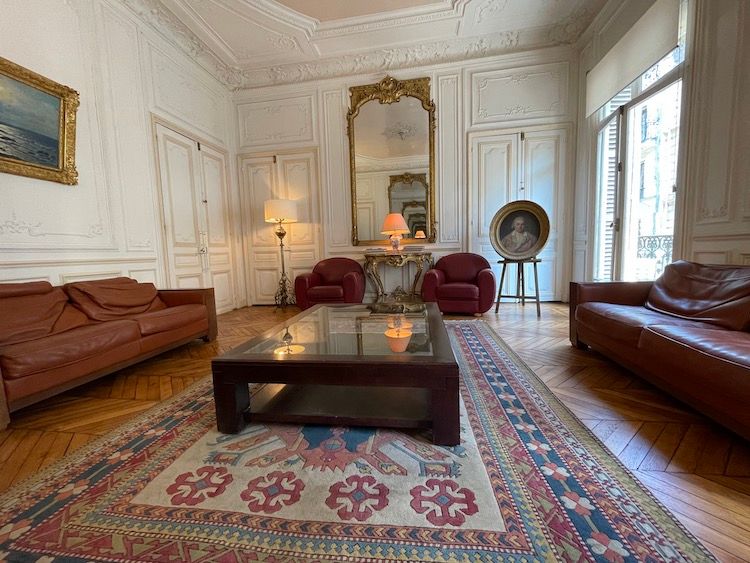
Friday, 3 December
I've been going to the dentist a lot lately, thus giving me occasion to consider a particularity of the French medical world. Doctors here are highly professional, but their context is often quite personal.
Rather than being situated in sterile, neon-lit anonymity, the cabinets médicaux I visit are nestled in otherwise residential buildings. You enter a courtyard…
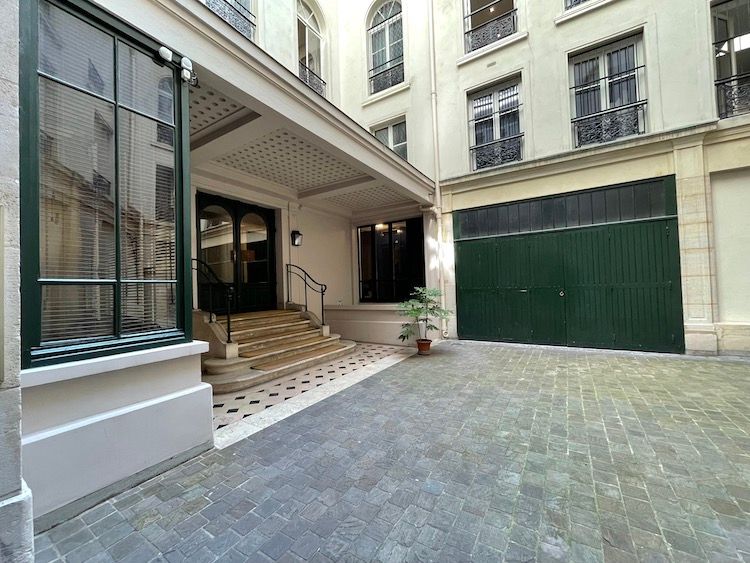
…go up carpeted stairs…
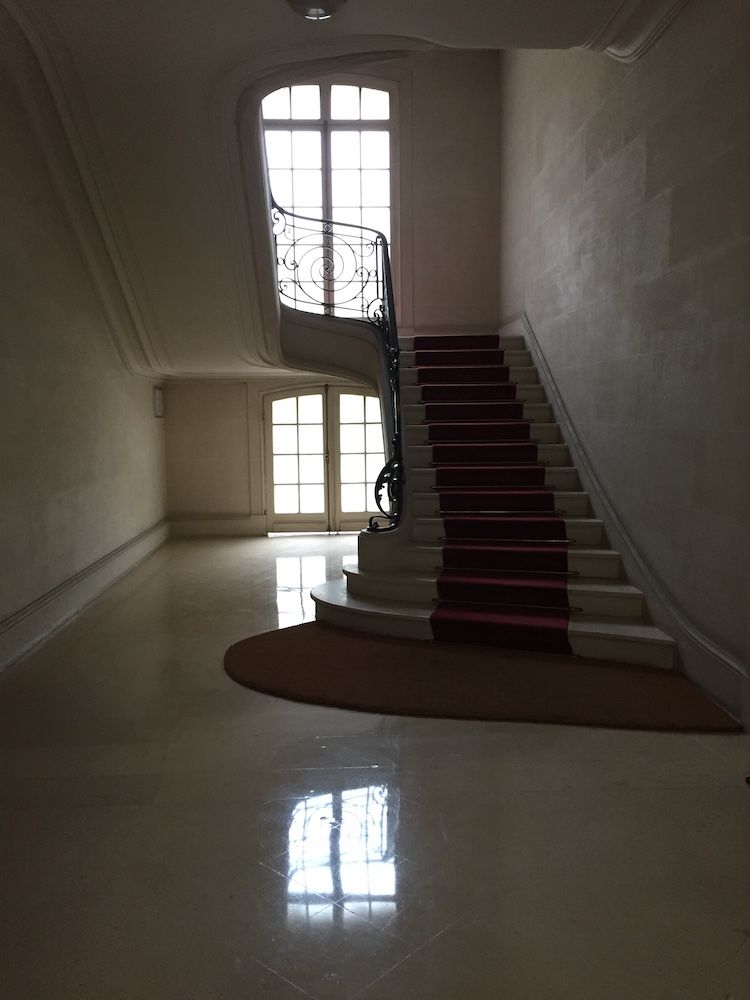
…pass softly-lit, curvaceous windows…

…into what still bears traces of an apartment...
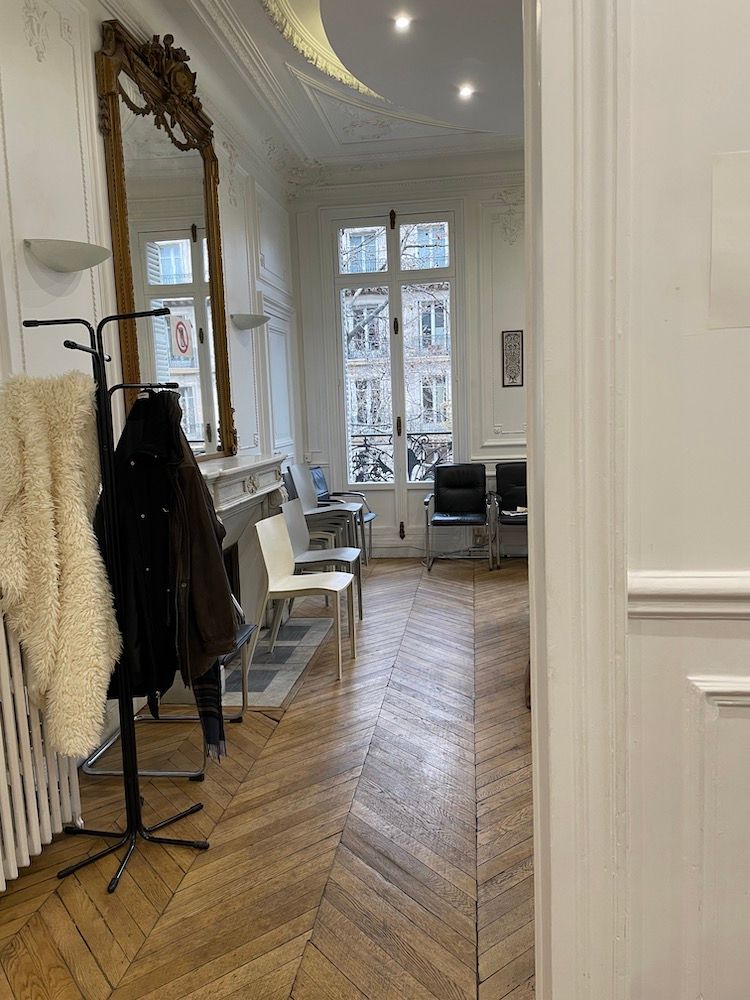
What sometimes still is an apartment, since traditionally members of professions libérales – doctors, lawyers and such – set up their practices chez eux, with the family salon doubling as the waiting room. “It was the avatar of WFH*,” says my former lawyer husband David.
I don’t think my dentist still lives in his cabinet (top photo), but he may have grown up there; he took the practice over from his father. At any rate, as you can see, style trumps function, and the room looks more like it's awaiting an intimate, amicable gathering of le Cercle d'Amis de Marcel Proust than a host of implant patients.
Over the years I have sat in many waiting rooms that definitely were still private salons. Tell-tale signs include furniture being arranged for social interaction or viewing of the television that stands in the corner, and family photos adorning the mantle. On the coffee table, underneath the copies of Paris Match and Point de Vue, are stacks of travel books and sailing magazines. Next to the table lamps are objects that communicate an interest in contemporary sculpture. Plush curtains frame the tall windows.
But even after 40 years, this fungibility can still strike me as odd. It seems almost voyeuristic to be sitting in the midst of a doctor’s private life, to imagine the kids lolling at night, where by day strangers like me perch apprehensively, waiting to find out if they have high blood pressure, cataracts or cavities.
On the other hand, such homey, often beautiful places, remove the clinical and sterile side of medicine, relieve stress. The concierge in me is all too happy getting a peek at how other people live, and as a patient, it can be reassuring to see the person who is about to kill my tooth in a broader light. The doctor is, almost, my friend.
Prepped as I have been by the duality of medical offices in France, nothing had prepared me for what David and I experienced last week, getting our third Covid jabs. Our generalist, who administered one and two (in his cheery ground-floor office on a bamboo-filled courtyard in a residential building, with his wife’s art on the walls - he actually is a friend), wouldn’t have any doses until well into December, so I got onto the Doctolib website in search of other possibilities. With nothing immediately available anywhere near us in Paris, I switched to the Orne, our département in the country, and got two appointments for last Monday at the Centre Hospitalier in Mortagne au Perche.
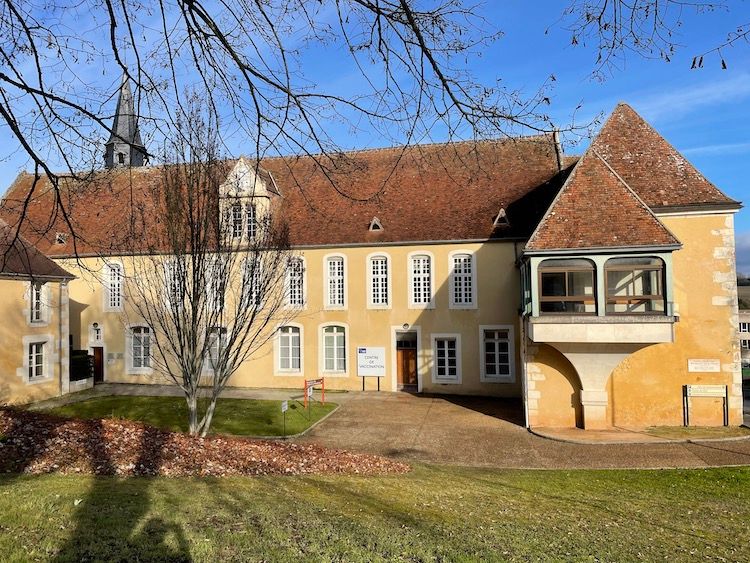
Not, as you can see, your standard medical institution, even if the vaccination room within had been stripped of all charm. Flimsy tables squared off an area behind which sat the administrators, who looked more like volunteers than paid professionals. They asked us questions and filled out paper forms by hand. A couple of laptop computers appeared to be connected to the internet. We waited on haphazardly arranged folding chairs and were given our jabs by a student nurse behind the flimsy partitions that separate hospital beds. But appearances can be deceiving. Just as the domestic demeanour of physicians' waiting rooms does not detract from medical proficiency, so the amateurish look of the Centre was misleading. We were in and out of there in 15 minutes, our new passes sanitaires in hand.
With our immune systems so efficiently boosted, we had time to follow a sign outside pointing to a Cloître. The door we assumed would be locked opened on to this…
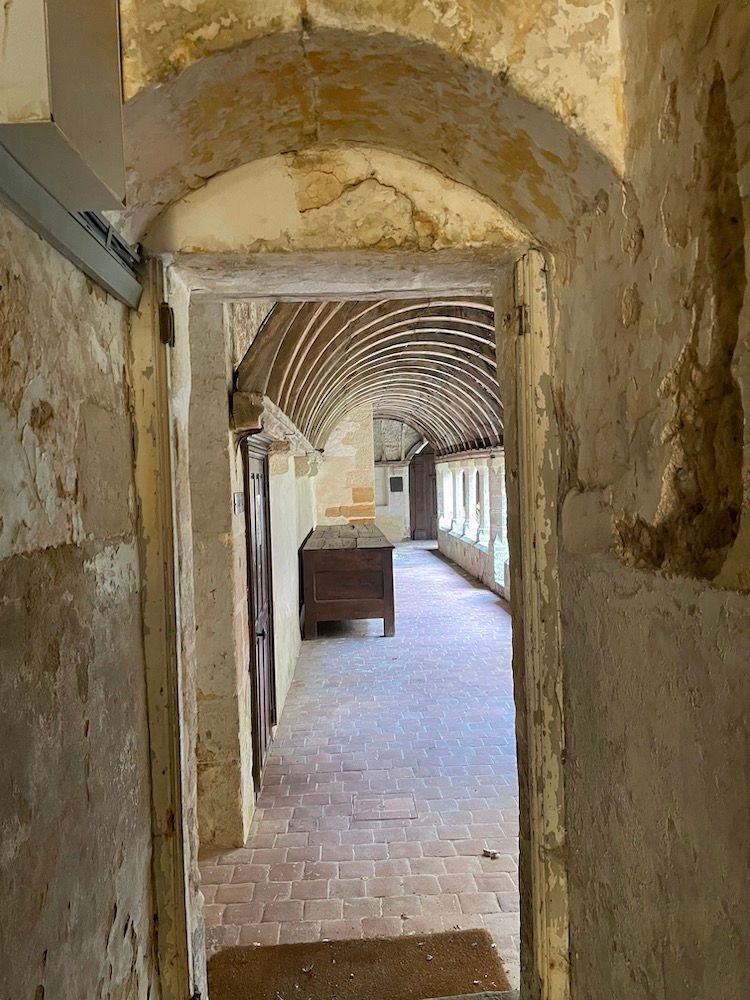
The full name of the establishment is the Centre Hospitalier de Marguerite de Lorraine because, we learned, this noble lady had founded the St-François Convent here in 1506. The vaccination room may have been sanitised, but the cloisters had clearly been left in peace since the Poor Clare nuns glided reverently under its wooden arcs.
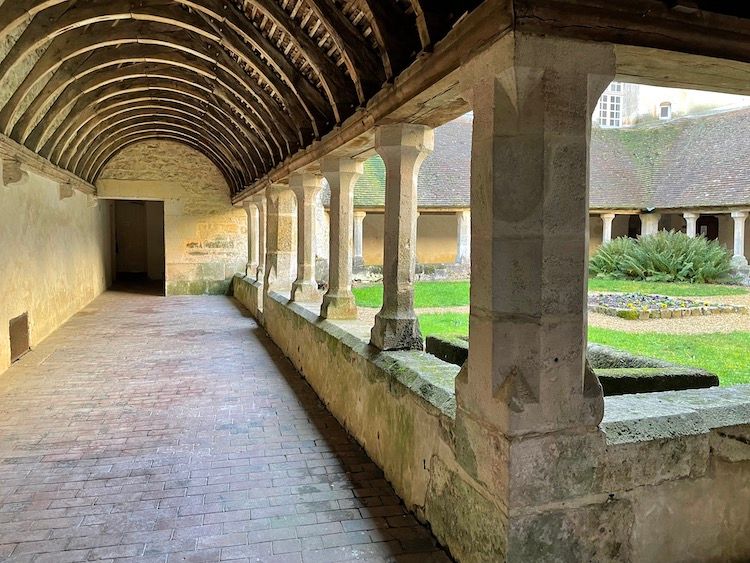
And there they were, open to any and all.
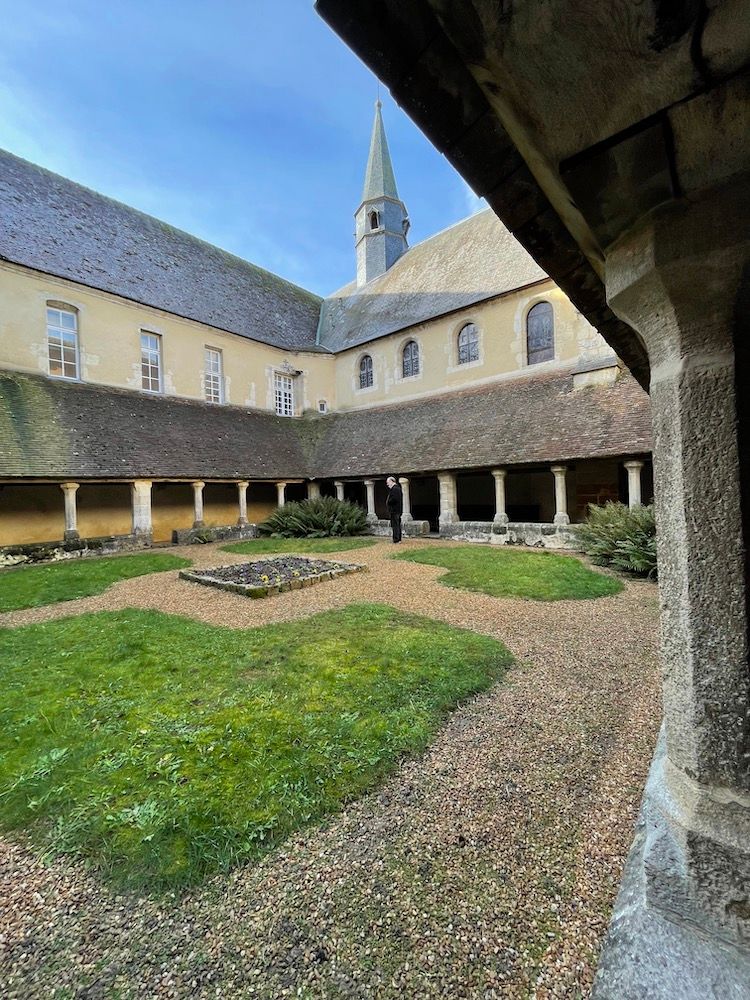
Stunned by such accessible splendour, we almost missed the door at the side leading to the chapel...
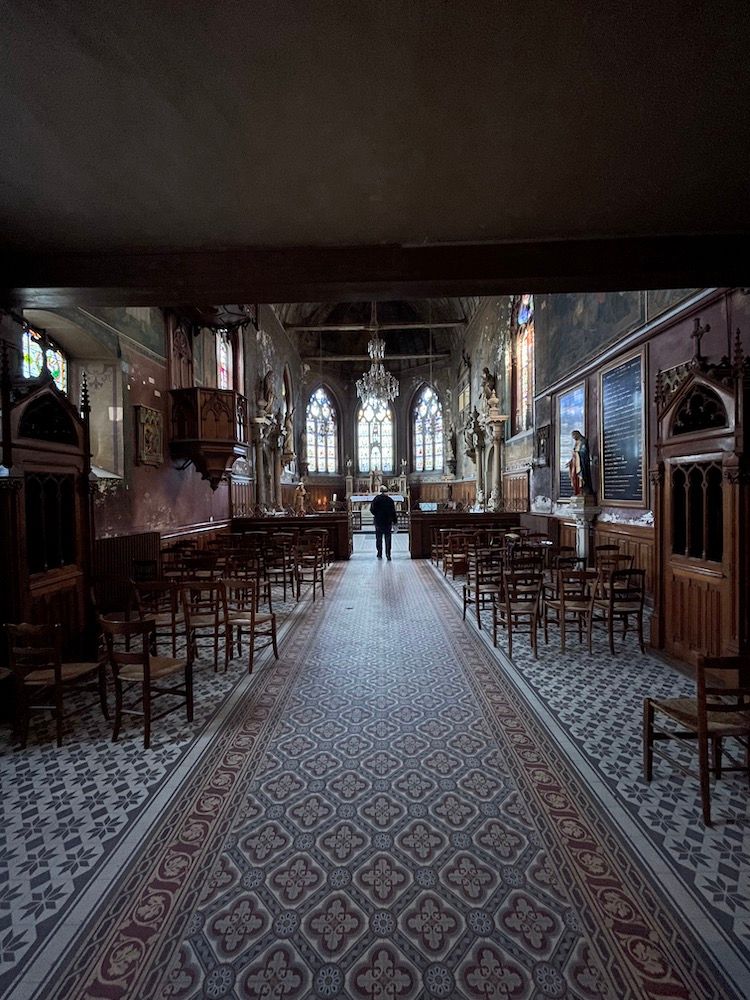
...and its art...
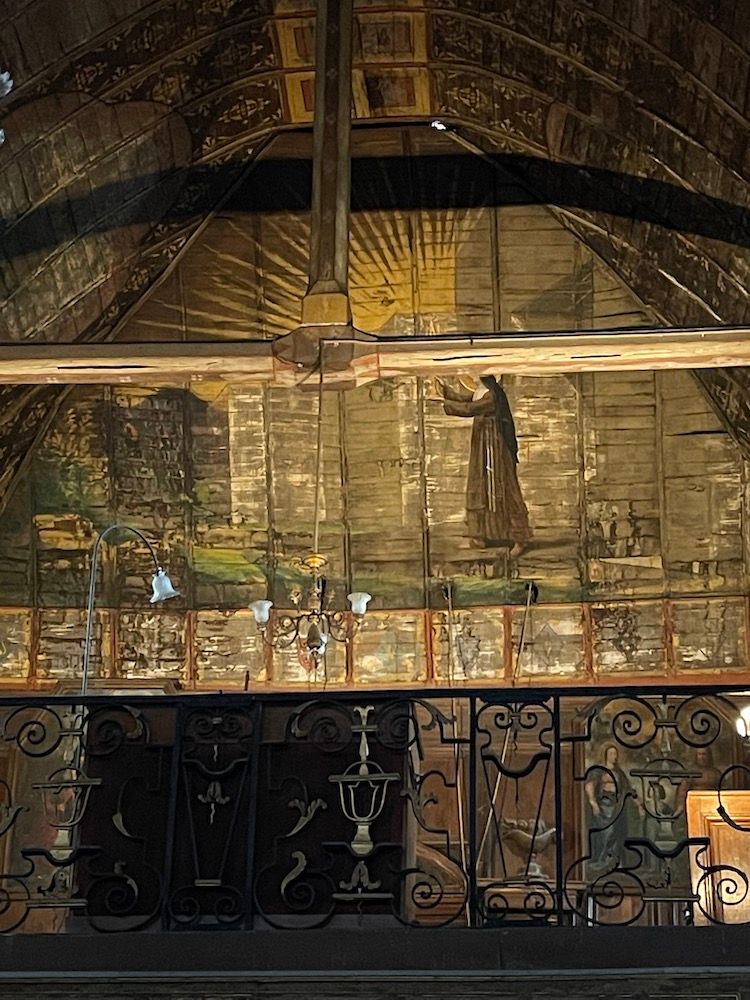
We left the medical centre on a physical and aesthetic high. French health care had delivered, and thrown into the mix was a serendipitous moment of transcendent beauty. Long live duality.
_____________________
*For the less acronymically inclined among you: Covid Era-speak for 'Working From Home'